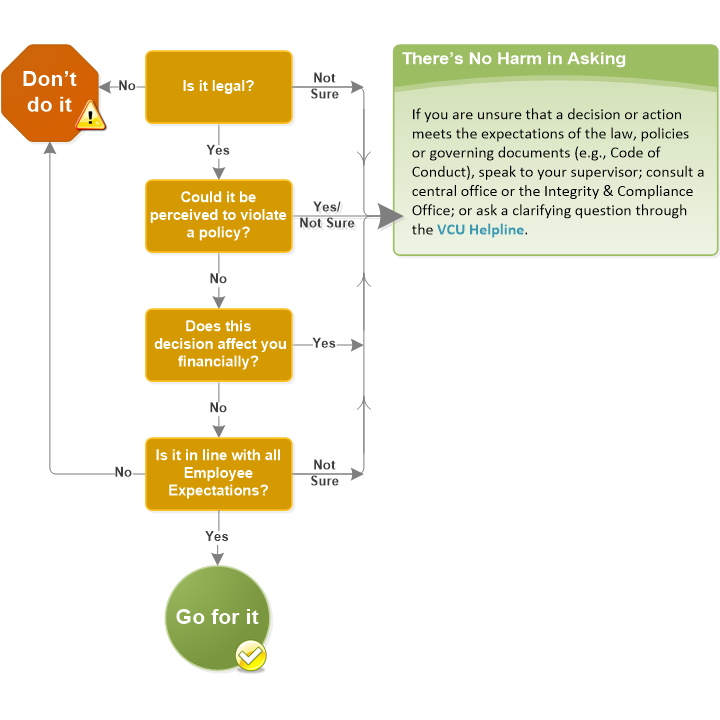Ethical decision-making
While both personal and business ethics may be defined in many different ways, the goal is always aimed at doing the right thing. Every choice we make in the workplace should reflect the expected behaviors outlined in our Ethical Standards contained within the VCU Code of Conduct. Consideration should be given to how your decisions impact your colleagues, the university and the public at large. Those in leadership positions have the additional responsibilities of setting clear expectations, leading by example and promoting a culture where employees feel comfortable asking clarifying questions and raising concerns.
The decision tree below provides a practical framework to assist in evaluating business decisions or actions. This guidance can help prevent misconduct and safeguard the collective reputations of the university and its employees.
 Click here to download the Ethical Decision-Making PDF.
Click here to download the Ethical Decision-Making PDF.
Ethics-Related Actions
The 2005 National Business Ethics Survey suggests eighteen critical elements of organizational culture. These are the ethics-related actions pertaining to different levels of management and workers:
- Communicate ethics as a priority
- Set a good example of ethical conduct
- Keep promises and commitments
- Provide information about what is going on
- Are held accountable for ethics violations
- Communicate ethics as a priority
- Set a good example of ethical conduct
- Keep promises and commitments
- Provide information about what is going on
- Are held accountable for ethics violations
- Support employees in following organizational standards (e.g., policies, core values, etc.)
- Consider ethics while making decisions
- Set a good example of ethical conduct
- Talk about the importance of ethics
- Support employees in following organizational standards (e.g., policies, core values, etc.)
- Are held accountable for ethics violations